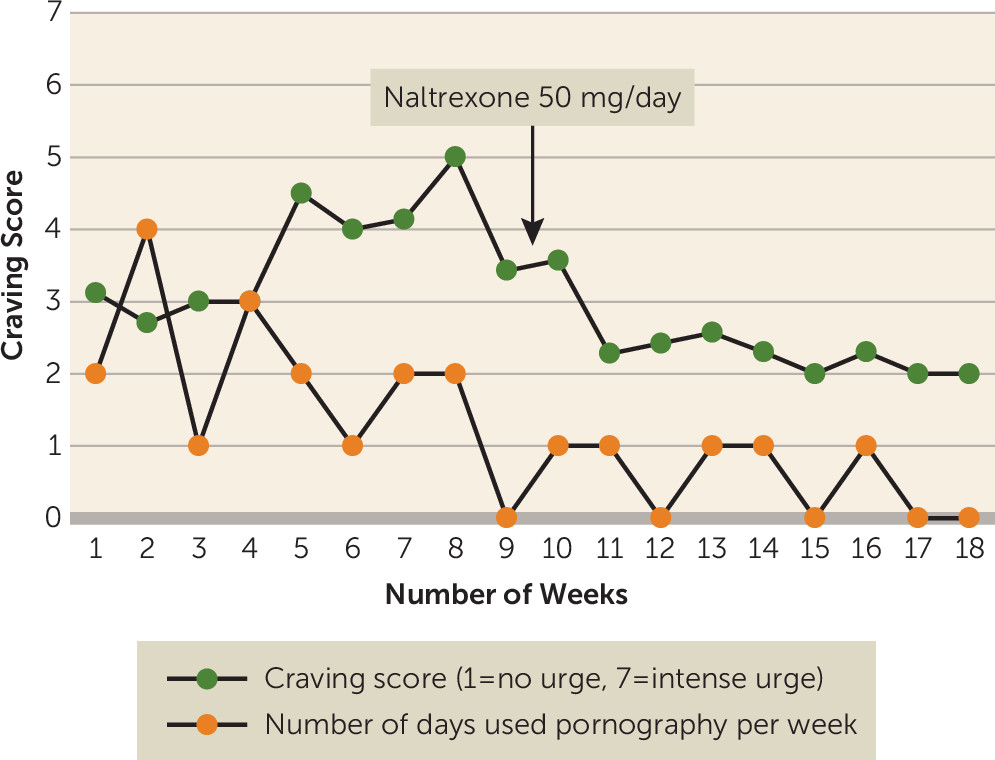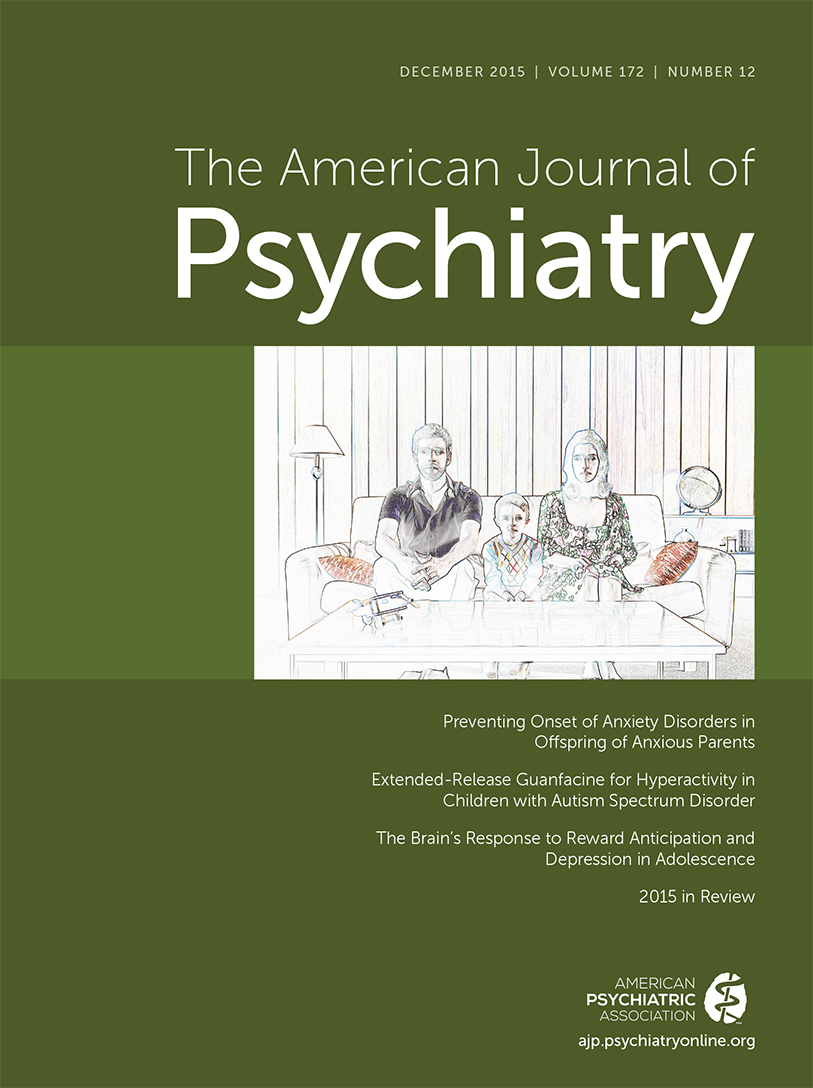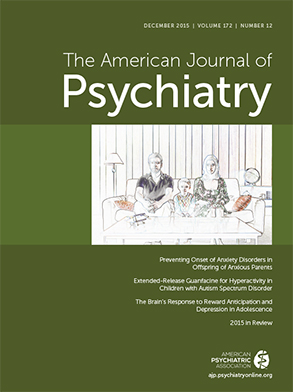Treatment of Compulsive Pornography Use With Naltrexone: A Case Report
Mr. D began using pornography regularly at age 13. During the intake interview, he reported compulsive masturbation to pornography for the previous 10 years despite numerous failed attempts to quit; he was viewing Internet pornography nearly daily for approximately 30 minutes. He reported a prior diagnosis of major depressive disorder and had no history of substance misuse, risky sexual behavior, or significant medical problems. He was not taking any prescribed medications.Mr. D began attending weekly individual cognitive-behavioral therapy delivered by a doctoral-level clinical psychologist. For 18 weeks, he completed daily self-monitoring worksheets assessing urges to view Internet pornography (1=no urge, 7=intense urge) and whether he had viewed and masturbated to pornography. Despite reducing his baseline use of pornography by approximately 70%, Mr. D continued to report frequent sexual urges to masturbate to Internet pornography. Therefore, on the 10th week of treatment, he was prescribed 50 mg/day of naltrexone. Within 2 weeks of initiating medication, he reported subjective decreases in his urges to masturbate to pornography. As shown in Figure 1, during the 9 weeks that he took naltrexone, the intensity of his sexual urges significantly decreased, from a mean rating of 3.71 (SD=1.28) for weeks 1–9 to a mean rating of 2.37 (SD=0.80) for weeks 10–18 (t=6.93, df=124, p<0.0001; Cohen’s d=1.25). He also viewed pornography less often: 17 days in weeks 1–9, compared with 5 days in weeks 10–18 (χ2=7.04, df=1, 125, p<0.01; odds ratio=0.25, 95% CI=0.09–0.73). In addition, he resumed regular, satisfactory sexual intercourse with his wife.

Footnote
References
Information & Authors
Information
Published In
History
Authors
Competing Interests
Funding Information
Metrics & Citations
Metrics
Citations
Export Citations
If you have the appropriate software installed, you can download article citation data to the citation manager of your choice. Simply select your manager software from the list below and click Download.
For more information or tips please see 'Downloading to a citation manager' in the Help menu.
View Options
View options
PDF/EPUB
View PDF/EPUBLogin options
Already a subscriber? Access your subscription through your login credentials or your institution for full access to this article.
Personal login Institutional Login Open Athens loginNot a subscriber?
PsychiatryOnline subscription options offer access to the DSM-5-TR® library, books, journals, CME, and patient resources. This all-in-one virtual library provides psychiatrists and mental health professionals with key resources for diagnosis, treatment, research, and professional development.
Need more help? PsychiatryOnline Customer Service may be reached by emailing [email protected] or by calling 800-368-5777 (in the U.S.) or 703-907-7322 (outside the U.S.).

